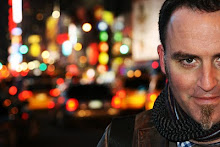I sat in the bedroom yesterday, composing at the piano, whilst, next door, Nathan rehearsed his “Broadway and Beyond” show with a pianist and another actor. It was somewhat surreal to hear the sounds of 76 Trombones and Lullaby of Broadway floating down the hallway from the lounge. I realised at that moment that I live a somewhat eccentric existence. Our neighbours must be utterly perplexed by the sounds which float down into their flats!
I read with horror yesterday that the BBC is due to close its iconic Maida Vale studios. Yet again, the BBC’s quest to modernise and save money blithely sweeps away the past.
I was greatly saddened when Television Centre in White City was sold off, not just because of the building’s architectural value, which was great, but because the building hummed with creativity. You couldn’t enter that building without immediately getting a sense of its importance and the extraordinary amount of incredible television which had been commissioned, written, filmed and edited there.
The BBC’s decision to sell-up, and build ghastly, shiny atrium-based buildings in Salford and Central London, where there were no offices and all business had to happen on ridiculous primary-coloured chairs, in open spaces, was indicative, in my view, of a corporation losing both its heart and its way.
Maida Vale was around before TVC. In fact, it’s pretty much the oldest surviving BBC building which alone has to give it some weight. Of course the BBC has described it as “wholly unsuitable for the 20th Century.” But then, they would, wouldn’t they?
A quick history of the place. Wikipedia informs me that it was built at the turn of the 20th Century as a roller skating rink! Who’d have thought roller skates even existed in 1908, let alone were enough of a crave to merit a giant building in their honour. One assumes roller skating went out of fashion, because the BBC acquired the building and had it refurbished as a series of seven studios which opened in the mid-1930s.
It immediately became the home of the BBC Symphony Orchestra. Studio MV1, within the complex, is the largest classical music studio in London, with space for 150 orchestral musicians.
From 1958 to 1998, the building also held the BBC’s seminal Radiophonic Workshop, who used cutting edge electronic technology to create sonic adventures, including the theme tune for Doctor Who. And if you’re looking for an important woman who fought off gender prejudice to become a pivotal figure in this brave new world, look no further than Delia Derbyshire.
An almost bewildering number of artists have recorded sessions at Maida Vale, from The Beatles and Led Zep to Bax, Bliss and Sir Adrian Boult.
The BBC has announced that they’re moving what goes on in the building to the Olympic Park in Stratford, no doubt at great cost into building utterly devoid of atmosphere, which doesn’t quite work the way it’s meant to.
Maybe I’m a bit of an old fart. I’m sure there were heavy running costs associated with a building like Maida Vale. Perhaps it genuinely wasn’t working, but for creative people, there’s so much importance in standing on the shoulders (or in the shadows) of giants. Every time I walk into a studio and see what else has been recorded there, I feel inspired. I want to raise my game. It’s almost as though the energy of the genius minds who have worked in a space continues to reverberate somehow. And I feel losing this is a heavy price to pay.
Wednesday, 6 June 2018
Subscribe to:
Post Comments (Atom)

No comments:
Post a Comment
Note: only a member of this blog may post a comment.